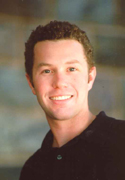
Jed Van Dyke
Vice President, Jacobs Connected Enterprise
Jacobs
Jed Van Dyke is currently the Vice President of Jacobs Connected Enterprise. As Vice President, his responsibilities involve leading the development and implementation of the Jacobs’ global digital transformation (digitization) strategy. Previously, Jed served as the CFO of a small information technology consulting firm. Jed is interested in integrating sustainability into corporate strategic thinking and planning. He intends to focus on the development of mechanisms that shift sustainable business practice from a perceived burden of responsibility to an economically viable and attractive business solution. Jed spent this past summer with Deloitte Consulting in Chicago, Illinois. His primary projects were development of a five-year strategic plan for a local Chicago non-profit organization seeking to limit the number of killings in Chicago and development of a consolidated cost allocations system design for two merging insurance providers. Jed spent the summer of 2000 with the Calvert Group, a socially responsible investment firm located in Bethesda, Maryland. For Calvert, Jed performed an analysis of the social, environmental, and financial performance of and trends within the biotechnology industry as part of the development and launch of a new technology fund. Prior to the MBA/MS Program, Jed earned a Bachelor of General Studies from the University of Michigan with a focus in Anthropology. Upon graduation, Jed worked at the World Foundation for Environment and Development (WFED), a non-profit environmental conflict resolution and consulting firm based in Washington, DC. At WFED Jed worked on the development and implementation of benefits-sharing contracts between private sector research groups and the U.S. Department of Interior (primarily for Yellowstone National Park). Work with Yellowstone included a fourteen-month on-site project during which Jed managed the day-to-day operations of the Yellowstone National Park research program and integrated the benefits-sharing model with the current research system.